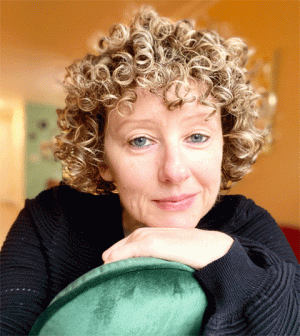- Mothering in a Fractured TimePosted 6 days ago
- Beneath the Surface: Revealing Life’s Goals nurtured from a Spiritual SeedPosted 1 week ago
- How We Kept Marital Peace while Traveling the World with Our KidsPosted 3 weeks ago
- How I Coped with Feeling Lost in a Changing SocietyPosted 3 weeks ago
- The Unexpected Liberation of a Butt DialPosted 2 months ago
- Why is France making abortion a constitutional right?Posted 2 months ago
Can We Please Start Talking About Perimenopause?

During a recent visit with my doctor, I referred to some issues I’d been having with my periods. I explained that over the past year they had become more irregular, sometimes non-existent. When I suggested that this change was directly related to perimenopause, his immediate reply to me was, “Probably not. You’re still quite young to be experiencing that”.
Typically, women are most likely to experience perimenopause in their late forties, but the process can begin as early as our thirties or as late as our fifties. As I’m now 46, fluctuating hormones are certainly not something that can be ruled out.
Conversations with close female friends of similar age to me have highlighted that entering our perimenopausal years is an experience shrouded in confusion. Mostly because nobody is really talking about it.
Menopause is defined as the time that marks the end of our menstrual cycle, usually a full twelve months after our last period. According to a study by the American Association of Retired Persons, 84% of participating women said that menopausal symptoms interfered with their lives. That’s a hefty percentage.
And, with a few exceptions such as hysterectomies or as a response to certain treatments, menopause doesn’t usually happen overnight. In fact, we can experience hormonal shifts up to 10 years ahead of menopause actually beginning. So why is there such scant information and support in the build up to one of the biggest changes our bodies can go through?
A couple of years ago I began experiencing hot flashes. One minute I’d feel perfectly normal and then out of nowhere a flush would begin to creep over my face, extending throughout my body. My cheeks would feel as though they were on fire and if I was wearing a jacket or sweater, I’d immediately want to remove it.
Then, as quickly as the flash came, it would disappear.
I’d only ever heard of hot flashes being associated with menopause itself, and as I was having fairly regular periods at the time, it was a surprise to me to discover that they could in fact begin before that.
Other things I began to notice were a need to urinate more frequently (especially at night), a loss of libido, vaginal dryness, palpitations, insomnia, and thinning hair. Who did I talk to about these changes? Other than my husband, absolutely no-one.
I didn’t want to accept that my body was entering a new phase. And the reason I felt that way was because admitting the truth made me feel old. Attached to that unwelcome acknowledgement were a whole host of other anxieties I wasn’t remotely keen on studying more closely – like feeling washed-up, irrelevant, and invisible. I was scared of slipping away, and so much sooner than I had ever imagined.
Searching social media for support proved to be depressing. Pinterest proclaimed that the biggest issue with perimenopause was weight gain, and then proceeded to flood my feed with articles on how I could beat the belly bloat.
Presumably so I could remain desirable for a few more years yet.
But, whilst the physical changes I was experiencing weren’t exactly joyful, what bothered me more was the shame I felt about experiencing them.
The overwhelming advice online was centered around how to reverse these hormonal changes, the suggestion being that perimenopause was somehow abnormal and should be quickly counteracted and, most importantly of all, not spoken about.
But, at the very least, shouldn’t we be able to have these conversations with our doctors?
A survey led by Johns Hopkins in 2013 discovered that some American obstetrics and gynecology residency programs failed to offer trainees any formal curriculum or clinical experience focused primarily on women’s pre- and post-menopausal health.
It was only in 2019 that Wen Shen, a gynecologist and assistant professor of gynecology and obstetrics at Johns Hopkins, published the Menopause Guide, an app to help medical providers recognize and treat symptoms.
It’s alarming to think of how many women have suffered in silence from the onset of perimenopause into their senior years because of the societal stigma attached to aging coupled with a lack of training and awareness from medical professionals.
When I voiced my frustration about this to another doctor during my annual physical a few months ago, she replied “The information is out there, you just have to look for it”.
I was left feeling puzzled as to why there’s a wealth of information related to pregnancy that’s readily available, yet guidance on perimenopause is something women have to hunt down.
It’s also interesting to note that there are 15.9 million posts on Instagram using the hashtag “pregnancy”. There’s a paltry 157k for “perimenopause”. Many women will experience both, but only one of them seems to be spoken about openly.
What might happen if we were to demystify what is a perfectly normal stage in millions of women’s lives? What might the impact on our overall health be if our doctors were better informed? How much more time and energy would we save if we stopped thinking of perimenopause as a problem to be fixed and understood it as a process that naturally happens?
What are your experiences of perimenopause? Is it a stage you’ve felt supported through or have you encountered a lack of information and awareness? I’d love to hear from you in the comments.
********
 Skylar Liberty Rose is a writer who helps women embrace aging and stay seen in a world that asks them to become invisible.
Skylar Liberty Rose is a writer who helps women embrace aging and stay seen in a world that asks them to become invisible.
Visit her website: skylarlibertyrose.com
Visit her Facebook handle: facebook.com/skylarlibertyrose







